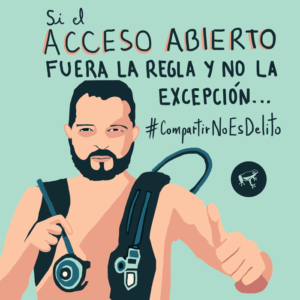 [Fundacion Karisma, Link (CC-BY-SA)] Two final hearings took place in May 2016, in the criminal proceedings that Colombian biologist Diego Gomez is facing for alleged copyright infringement.
[Fundacion Karisma, Link (CC-BY-SA)] Two final hearings took place in May 2016, in the criminal proceedings that Colombian biologist Diego Gomez is facing for alleged copyright infringement.
“Whom do you hurt the most when there is no scientific information for years? The author or the country?” activist and lawyer Carolina Botero, from Karisma Foundation asked in her column “Sharing Is Not a Crime” in July 2014 when Diego’s case was made public in the media. The criminal process that began more than two years ago has continued its course, and on May the 3rd and 18th the judge heard Diego’s testimony. In August the judge will hear the concluding arguments of the prosecutor and defense.
“The issue of access to scientific knowledge has not yet been debated in Colombia, although the system of academic publications is absurd here. In the rest of the world researchers, activists, libraries and universities (including Harvard) have started to argue that we should change the system” says Maria Juliana Soto, researcher at Karisma Foundation in the article “Scholarly Publications System: Story of Nonsense.”
As stated by Diego in a letter published on the campaign blog #CompartirNoEsDelito, it is a “long and exhausting process,” but he recognizes that the situation has strengthened him to complete his studies in conservation, and that this is “a small obstacle compared to the great challenges we have in the conservation of our biodiversity and our survival as a species.”
At other times, the news about the hearings that are part of the criminal proceedings revived the #CompartirNoEsDelito campaign, #StandWithDiego and the declaration of global support for open access to knowledge signed by more than 35,500 people, promoted by organizations like Karisma Foundation, Open Access Button, EFF, Sparc and Creative Commons. This time is not an exception.
If the thesis shared by Diego on the Internet had been originally published in open access repository, the criminal case simply would not exist because open access allows the copy, use and sharing of scientific work – unrestricted access to full text under a free license. It is time for open access to be the rule rather than the exception for publicly funded scientific publications.




